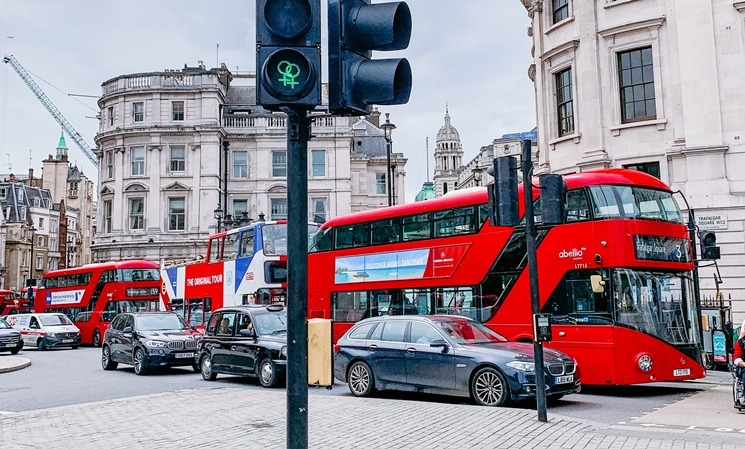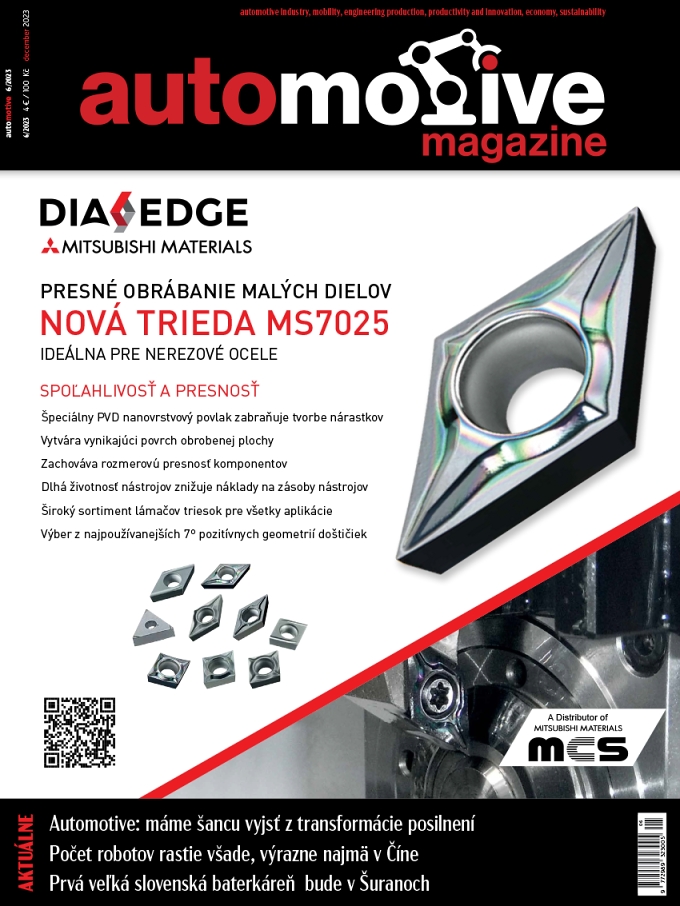Brexit and customs duties. What happens after 1.1.2021?
After the expiration of 31.12.2020, the so-called transitional period and the United Kingdom will definitively, even de facto, withdraw from the European Union. The United Kingdom has already withdrawn from the European Union de jure on 1.2.20, but during the transitional period it has remained part of the common market and the customs territory of the European Union.
The United Kingdom (excluding Northern Ireland, which will be given a specific status) will therefore be considered as a third country and a separate customs and tax territory from that date. The conclusion of the Free Trade Agreement will not change this. Its conclusion will have no effect on the customs obligations related to export, transit and import of goods, and certainly not on tax regimes.
It represents a significant change for economic operators from the European Union (and thus also from the Slovak Republic) which trade with economic operators in the United Kingdom. Customs formalities will be applied to these trades in the same way as they apply to trades with third countries, including the submission of customs declarations, customs checks all related checks.
In particular, in the United Kingdom, contrary to the current simple procedure of the so-called IntraCommunity delivery and acquisition of goods, already on entry into the customs territory of the United Kingdom, the customs declarations must be lodged, a consignment must be recorded in the United Kingdom's financial administration systems in order to carry out a risk analysis and, where appropriate, to allocate consignment under customs control. The same applies for goods dispatched from the United Kingdom to the European Union, but in the opposite direction.
It is necessary to emphasize three facts, which partially mitigate the customs and tax legal effects of Brexit and which will be relevant at the beginning of de facto Brexit (as of 1st January 2021):
1. We can state with almost certainty that the Free Trade Agreement will apply from 1 January 2021. The EU-UK Trade and Cooperation Agreement (hereinafter referred to as the "Free Trade Agreement") was informally concluded on 24 December 2020, which will enter into force on 1st January 2021, even without the prior consent of the European Parliament which will only approve it subsequently in January 2021; on 28 December 2020 the Member States unanimously approved the Free Trade Agreement by the ambassadors from 27 EU Member States. Until 29 December 2020, the agreement was formally confirmed by EU Member States and on 30 December it was approved by the UK Parliament.
The text of the Free trade Agreement is available at the link bellow: https://assets.publishing.service.gov.uk/government/uploads/system/uploads/attachment_dat a/file/948104/EU-UK_Trade_and_Cooperation_Agreement_24.12.2020.pdf
From the customs point of view, the provision concerning the prohibition of the imposition of customs duties between the contracting parties on goods originating in one of the contracting parties and the prohibition of the imposition of other prohibitions and restrictions on goods other than those permitted by Article XI of GATT 1994 are of the most importance within the Free Trade Agreement. Thanks to the conclusion of the Free Trade Agreement, trade between the European Union and the United Kingdom will continue free of duties even after 1st January 2021, when the United Kingdom leaves the European Union's single market. The businesses must be prepared for the fact that if they want to apply a zero rate of duty after 1st January 2021, they will have to prove the origin of the goods in one of the contracting parties (GB or EU) on the one hand, and customs formalities, customs supervision, including customs checks or checks following the release of goods for the declared customs procedure will apply on the other hand.
2. Regardless of the conclusion of the Free Trade Agreement, the United Kingdom will not leave the European Union completely without an agreement. On 30 March 2019, the Agreement on the withdrawal of the United Kingdom of Great Britain and Northern Ireland from the European Union and the European Atomic Energy Community (hereinafter referred to as the "Withdrawal Agreement") entered into force. From the point of view of the customs and tax law, inter alia, important "transition" legal relations in the third part, chapter II. and III. it addresses the ongoing customs procedures and matters relating to VAT and excise duties (for example goods placed on the date of Brexit (on 1st January 2021) under special customs procedures, or under tax transactions with a cross-border element (for example call of stock)).
The text of the Withdrawal Agreement is available at the link bellow: https://eur-lex.europa.eu/legalcontent/SK/TXT/?qid=1580206007232&uri=CELEX%3A12019W/TXT%2802%29
3. The United Kingdom has introduced autonomously in its customs territory a simplified 3-stage import clearance regime due to a need to complete the „customs capacities“ such as electronic consignment tracking systems or border checkpoints from 1st January 2021 until 30 June 2021.
3.1. First stage from 1st January 2021: - suspension of customs obligations on standard goods is introduced on import into the United Kingdom from the European Union (from clothes to electronics), while importers only keep sufficient records necessary for lodging supplementary customs declarations and paying customs duties (up to 6 months from import), - „Safety and Security declarations“ will not be required on imports for the first six months, - standard customs declarations will be needed from 1st January 2021 for controlled goods and excise goods, while there will also be physical checks on high-risk live animals and plants at the point of destination, - standard procedure for export from the United Kingdom will apply from 1st January 2021.
3.2. Second stage from 1st April 2021: - import of all products of animal origin and plant products will require pre-notification „Safety and Security declarations“ and health documentation; any checks will be conducted inland.
3.3. Third stage from 1st July 2021: - standard customs declaration for all imported goods will be lodged and checks will take place at border control posts. Regardless of the above-mentioned transition simplifications concerning mainly import of goods into the United Kingdom, it is time to seriously deal with the customs and tax impact of Brexit on trade with the United Kingdom. The main consequence of the United Kingdom withdrawal from the EU is, that the movement of goods, which enter the European Union from the United Kingdom, will be from the date of the withdrawal treated as import. The movement of goods, which leave the European Union into the United Kingdom will be treated as export. The opposite applies for the opposite direction of the goods. This implies various obligations and changes for sellers, buyers, freight forwarders, carriers, customs representatives, guarantors, regular shipping operators, ports and the customs or financial administrations. It is therefore difficult to summarize all the changes in the obligations of individual parts of the supply chain within one document, even, if we need to take into account both directions of trade (EU → UK, UK → EU) and also if we need to take into account the fact that goods may enter and leave the customs territory of the European Union through the different Member States of the European Union, which have their own customs systems and smart systems for managing the entry and exit of goods. Nevertheless, we will try to make some general recommendations that we have identified in relation to Brexit. Please find bellow the following recommendations:
1. Revise the delivery terms and conditions with your business partner As already mentioned, customs obligations will occur on both sides of trade (EU, GB) in both directions. In order to complete customs formalities, you must meet the necessary requirements according to customs legislation (registered office or permanent establishment). At the same time, it is a professional activity for which you need to have the necessary qualification. We draw your attention to EXW and DDP delivery clauses agreed between the trading partners, which probably worked smoothly during the common market and during the so-called intraCommunity supply, but after the withdrawal of the United Kingdom from the European Union they are absolutely unsuitable if you do not have a registered office or permanent establishment and necessary registrations in the country of supply or dispatch of goods.
2. Clarify your customs and tax status in the country of import or export, ensure the EORI registration and cooperate with customs representative. After reviewing the delivery terms and conditions and possible negotiations with a business partner, please clarify your customs position in the country of dispatch and supply according to the terms agreed. If you are for example responsible for completing the customs formalities in the United Kingdom or you will communicate in any way with the financial administration of the United Kingdom, you need to apply for a EORI number in the United Kingdom. The unique EORI number that you have been given in the European Union will not apply in the United Kingdom after Brexit, as the United Kingdom is introducing their own unique EORI numbers. If you are responsible for the customs procedure in the country of supply and at the same time you do not meet the conditions for the status of declarant in the country of supply, you will have to conclude a contract with a customs representative for indirect representation so that an indirect representative acts as a declarant on your behalf. It is also necessary to consider VAT registration in the country of supply and thus facilitate the payment of VAT.
3. Check the validity of the customs authorisations issued so far and check the necessity to issue the new customs authorisations. If you have customs authorisation in the European Union according to European customs legislation and this authorisation, for example, covers certain operations in the United Kingdom, please bear in mind that these operations will no longer be covered by customs authorisation in the European Union, as these operations will already be carried out in the territory of a third country. In the case of such authorisations, it will be necessary to request their change in the Member State of issue. On the other hand, customs authorizations issued according to European customs legislation in the United Kingdom before Brexit cease to be valid after 1st January 2021 (for example authorisations for simplified procedures). This is without prejudice to the provisions of the Withdrawal Agreement about the goods released on the basis of such customs authorisations (Article 49). If certain processing operations were carried out on the other side of the English Channel within the common market and the single customs territory before Brexit, from 1st January 2021 you will need to have customs authorisation for those operations. The tax regime will also change.
 |
4. Analyse the impact of Brexit on the application of preferences Regarding the prohibition concerning the imposition of any customs duty on goods originating in one of the contracting parties under the Free Trade Agreement, trade between the European Union and the United Kingdom will be subject to the application of a preference (0% of duty rate) in customs proceedings and a proof of origin (EU or UK) will be required in the prescribed manner. It is necessary to distinguish the origin of goods from the status of goods. The fact that certain goods imported from a third country are released for free circulation in the United Kingdom or in the European Union does not mean that they also originate there. The Free Trade Agreement contains its own rules for determining preferential origin, including the possibility of cumulation of origin, a tolerance clause and neutral elements.
5. Prohibitions and restrictions shall apply during a trade with the United Kingdom as they are applied with any other third country Prohibitions and restrictions introduced by the European Union legislation will also apply to the goods coming from the United Kingdom after Brexit and vice versa. The United Kingdom imposes its own autonomous prohibitions and restrictions in accordance with Article XI of GATT 1994, so it is necessary to check the existence of these measures (for example check them with a customs representative in the United Kingdom).
6. Consider to apply for the simplified procedures and AEO status or for BTI, BOI One of the negative effects of Brexit will also be the delay of consignments due to the completion of customs formalities, whether at border or inland customs offices. Delays at customs offices can be avoided precisely by using a wide range of simplified customs procedures for import, export, but also for transit of goods. The British government has published a manual UK Border Operating Model (https://assets.publishing.service.gov.uk/ government/uploads/system/uploads/attachment_data/file/925140/BordersOpModel.pdf), where it explicitly recommends to request all available customs facilitations and simplifications in order to ensure the smooth flow of goods. The same recommendations are on the side of individual Member States of the European Union.
The status of Authorized Economic Operator (AEO) is considered as the most important, which is a prerequisite for obtaining the widest range of different tariff simplifications under the fasttrack regime. The execution of customs formalities is shifting to the economic operators themselves, or to customs representatives thanks to the simplified procedures. It also simplifies the presentation of goods in such a way that the goods do not have to be presented at the customs office, but the economic operator presents the goods by notification to the customs office so that the goods are in the economic operator's private premises.
Requesting binding information on the nomenclature and classification of goods or on the origin of goods can also simplify the customs procedure. In that case, the customs officers do not question the classification of goods or origin of goods, which are, besides the customs value of goods, the most common reasons for the customs controls and subsequent charge of customs duties and VAT.
7. When importing goods into the European Union it is necessary to prepare for the payment of import VAT. As already mentioned, goods coming from the United Kingdom after 1st January 2021 will be considered to be subject to customs supervision and, if those goods are to be released for free circulation in the European Union, they will be subject to payment of VAT and they will be subject to possible prohibitions and restrictions. The obligation to pay import VAT, which in many Member States of the European Union, including the Slovak Republic, must actually be paid within the due date of the duty (10 days) to the customs authorities, can be considered as the most significant change when trading with the goods from the United Kingdom. This will undoubtedly have a significant impact on the cash flow of the companies which import such goods, as until the date of Brexit, VAT on the acquisition of goods from another Member State (United Kingdom) was dealt through a reverse charge.
8. Check other obligations and conditions depending on the flow of goods Firstly, it is necessary to emphasize that on both sides of the English Channel, the so-called smart systems are built. These smart systems, on the one hand, will use the geographical specificities when transporting goods between the United Kingdom and the European Union and, on the other hand, will eliminate the cross-border delays by an effective use of electronic systems for consignment registration and the effective use of risk analysis by customs authorities. The ports of the European continent are under the administration of the different Member States and under their customs and financial administrations. For that reason, you need to be prepared for the situation that if your goods are transported through a port in France, you will communicate with other systems like in the situation that you transport the goods through a port in the Federal Republic of Germany. It is therefore necessary to consult customs formalities and specific local obligations on the web portals of the customs and financial administrations of individual Member States.
We would like to draw your attention to the special status of Northern Ireland, which from the point of view of the European Union will be considered as part of the customs territory of the European Union. When transporting goods to Northern Ireland, or Ireland is therefore recommended to use a direct regular maritime transport, without using the transport section in the United Kingdom. In that case there would be no need to use the transit customs procedure and no need to prove the status of the goods in the European Union.
Following the above-mentioned, Brexit will bring significant changes in trading with the United Kingdom, so any company that buys or sells goods related to any kind of relationship with the United Kingdom should meet its minimum due diligence and carry out a basic analysis focusing on the impact of Brexit on its trading.
- autor:
- JUDr. Maroš Prosman

















